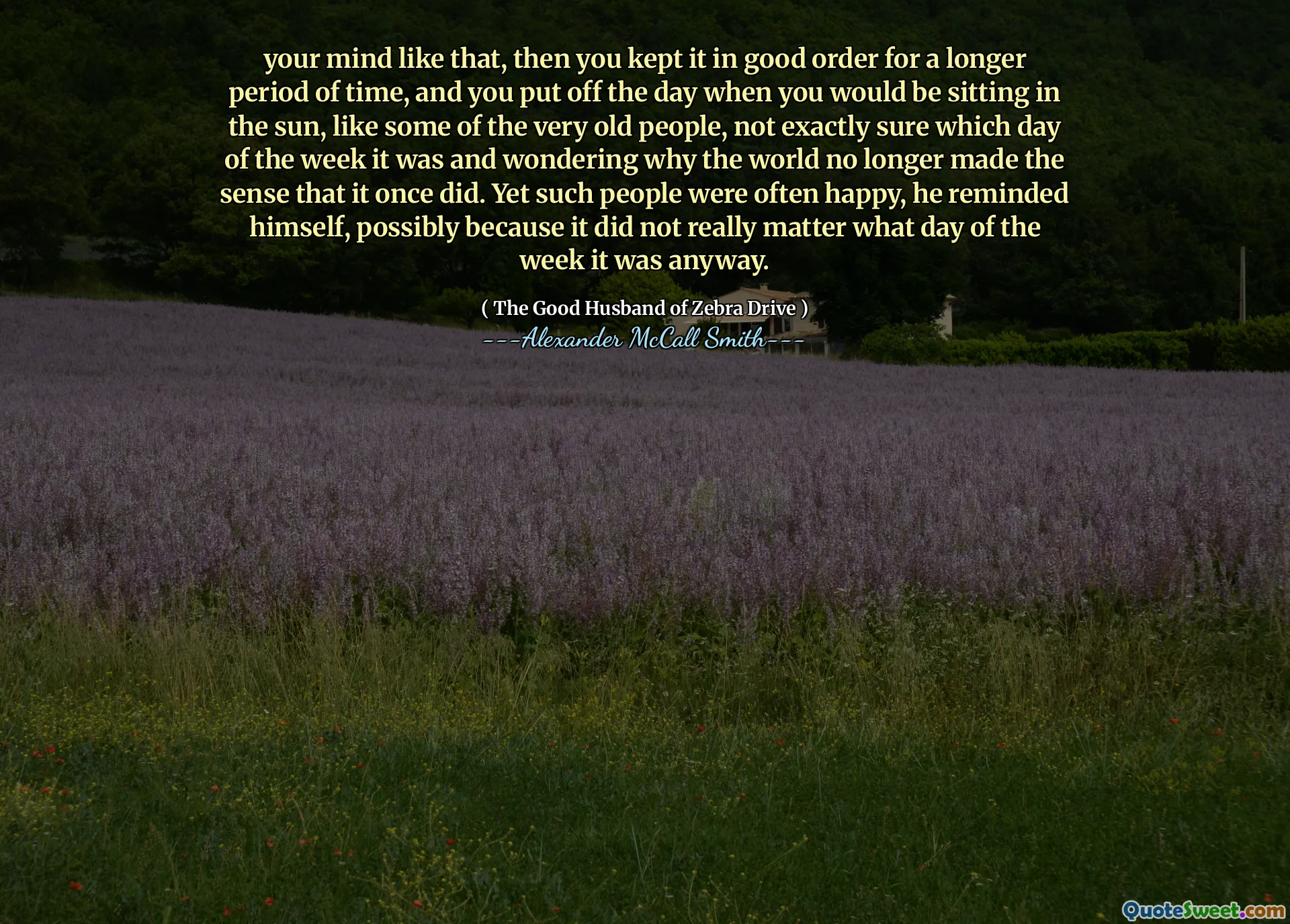
your mind like that, then you kept it in good order for a longer period of time, and you put off the day when you would be sitting in the sun, like some of the very old people, not exactly sure which day of the week it was and wondering why the world no longer made the sense that it once did. Yet such people were often happy, he reminded himself, possibly because it did not really matter what day of the week it was anyway.
The passage reflects on the importance of maintaining one’s mental clarity and order as one ages. It suggests that by keeping one’s mind engaged and organized, individuals can delay the inevitable decline that often comes with old age. The mention of sitting in the sun implies a peaceful yet potentially disorienting life in later years, where individuals may lose track of time and meaning. However, it acknowledges that there can be a sense of happiness found in this simplicity and lack of concern for the days of the week.
This idea invites reflection on the nature of happiness and aging. It proposes that perhaps a carefree attitude towards time leads to contentment, allowing older individuals to enjoy the moment rather than being troubled by its fleeting nature. Ultimately, the quote captures a poignant balance between maintaining mental acuity and the acceptance of life’s inevitable changes, suggesting that happiness can thrive even in periods of uncertainty.











